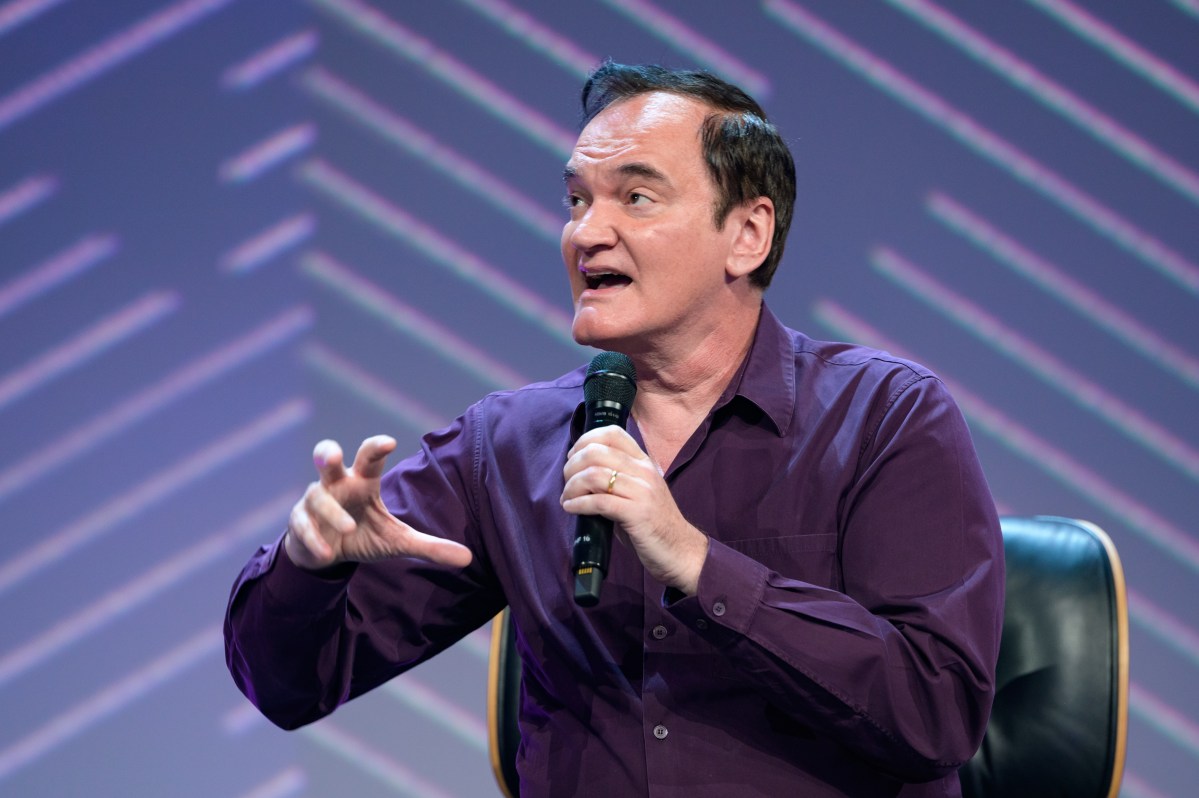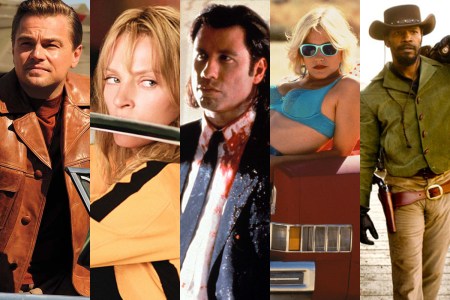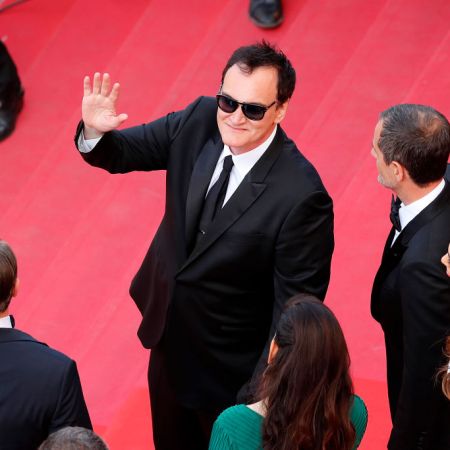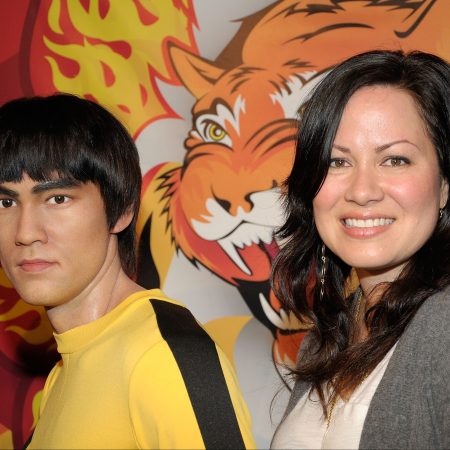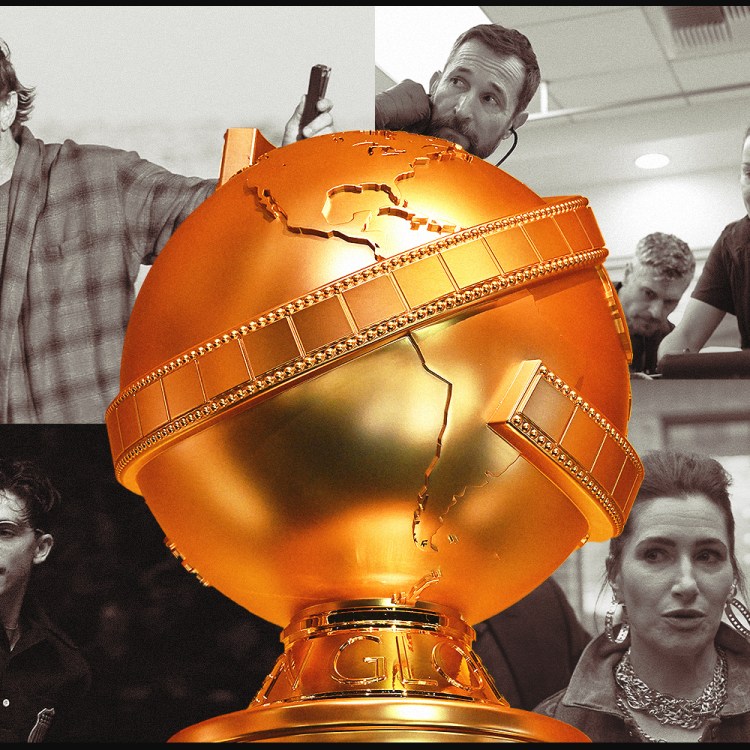Quentin Tarantino has long claimed that he will quit making movies after his 10th feature and transition into other types of writing: books, plays, possibly television. Though it’s possible that he’ll renege on this vow, he is pretty close to that point. Counting Kill Bill as one film, as he does, gives him one left to go, and he does seem to be making some preparations: His two most recent releases are a novel version of his ninth film, Once Upon a Time in Hollywood…, and his new book Cinema Speculation, which just hit shelves. It’s a personal form of film criticism — Tarantino has always come across as half-scholar, half-fanboy — so it’s fitting that the filmmaker recently discussed seven movies he considers perfect on Jimmy Kimmel’s talk show.
Though Tarantino’s periodically issued year-end lists tend to have some wild outliers compared to more staid critics, his list of perfect movies is relatively uncontroversial, and anything but obscure. Those seven movies are, in chronological order: The Wild Bunch, The Exorcist, Young Frankenstein, The Texas Chain Saw Massacre, Jaws, Annie Hall and Back to the Future. In his discussion with Kimmel, Tarantino makes it clear that he’s not necessarily talking about movies he considers personal favorites, but the rare movies that are more or less unassailable: “A perfect movie kinda crosses all aesthetics. It might not be your cup of tea, but there’s nothing you can say to bring it down.” When he rattles off Young Frankenstein, for example, he offers “I can understand that,” making it sound as if he may have more respect for it than bone-deep love. He also immediately second-guesses the inclusion of The Wild Bunch because he notes that imperfections are part of what he loves about it.
Put together, it’s a fascinating exercise, attempting to impose some kind of objective standard upon art — and not with the joyless calculations of gamers tallying up Rotten Tomatoes or Metascore numbers. Plenty of those folks misunderstand criticism and spend plenty of time getting mad at critics for not being “objective” about their favorites; in these cases, the proof is usually box office, or “audience scores” (nebulously collected as they may be), or other critics. Objectively, they will argue, Avengers: Infinity War is a great movie; how can you not acknowledge at as such? That doesn’t seem to be what Tarantino is after.
Selecting “perfect” movies is really more about translation: attempting, somehow, to convert your subjective experience into both an understanding of the craft that led to that experience, and a more universal sense of how other people received and understood that craft. The impossibility of this task is what makes it fun — and the results, especially when limited to few enough to count on two hands, will always be telling. Look at Tarantino’s choices: Out of seven movies, five of them came out in the 1970s (with one the decade before, and one the decade after), all within the same five-year period. Tarantino was born in 1963, so these are movies that were originally released when he was between the ages of 10 and 15.
This is partially a testament to the great wealth of American filmmaking throughout the 1970s, as well as the stats-skewing scarcity of “perfect” movies in general: “There’s not many of them,” Tarantino says in his Kimmel interview, noting this as proof that “the film art form is hard.” But it’s also a testament to Tarantino himself. Surely Casablanca, Citizen Kane and Singin’ in the Rain feel like “perfect” movies in ways that others with comparable levels of acclaim or popular success may not — but those weren’t what sprang into Tarantino’s mind. I don’t know for sure if Tarantino saw all five of those ’70s releases in their original runs (he almost certainly saw Back to the Future in 1985, and almost certainly didn’t see The Wild Bunch in 1969, when he was six — though it’s possible, of course). But I would guess that he did, based on his age and his own stories about watching seemingly “inappropriate” movies at a young age.
Granted, there’s nothing revelatory about the idea that pop culture you experience as a younger person tends to imprint on you, and that sometimes those experiences are harder to recreate as an older person. (This is why few if any people over 40 should be trusted with opinions about Star Wars movies.) But Tarantino, in his offhand way, does encourage the process of sorting through those movies that imprinted on you — and any movie nerd is going to have dozens of those — and deciding on a few that you could feel, whether at the time or in retrospect, reaching beyond your weird individual brain.
Quentin Tarantino’s 50 Best Character Names, Ranked
Prepare for alliteration. So much alliteration.As an exercise, I attempted to name seven “perfect” movies, and I came up with Psycho, Airplane!, Raiders of the Lost Ark, Back to the Future, A Fish Called Wanda, Say Anything and Fargo. That’s one title in common with Tarantino’s off-the-cuff list, and a decade ago, it might have been two; Annie Hall is a longtime favorite of mine, but — given its chatty, freewheeling, quasi-autobiographical style — I may now be conflating the rather more glaring imperfections of the man who made it with the movie itself. (It’s not surprising that Tarantino has less trouble with this — and not in a way that reveals some character flaw on his part, so much as his age and sensibility.) And thinking of others that almost made the cut, here is the silliest thing I will write today: Starship Troopers is my Wild Bunch. Not in terms of what the movie does, or how it does it, but in terms of a movie I’d describe as “perfect,” then immediately take it back, realizing that its very intentions have imperfections built into it.
The ones that did make my hastily assembled sorta-list fall a little earlier in my personal chronology than Tarantino’s, but I saw them all well within the boundaries of youth: between 10 and 20, say. The trick of criticism, I think, is to feel fervently that your ridiculous subjective experience can share space with some kind of clinical objectivity. Not in the vainglorious sense of knowing more or better than other viewers, but of sensing a connection to the outside world that goes beyond you and the movie. Of course thousands if not millions of people could watch The Texas Chain Saw Massacre and not like or respect it — and of course I understand why Tarantino calls it perfect. Earlier in the interview, Tarantino refers to playing with his toddler son, who will not remember their elaborate games and repeated jokes, as “writing poetry on the sand.” A “perfect” movie will feel half casual and half miraculous: writing in the sand that leaves you figuring out, years later, how and why it didn’t wash away.
This article appeared in an InsideHook newsletter. Sign up for free to get more on travel, wellness, style, drinking, and culture.
